
Global Standards for Responsible AI Development
Understand how international standards bodies like ISO, IEEE, and CEN contribute to unified safety frameworks for AI safety, trust, and regulatory compliance.
Regulatory Standards in AI
Standards are formal, established guidelines designed to ensure consistency, safety, and quality across industries. In the context of AI, standards play a vital role in shaping how AI systems are developed, deployed, and governed. They provide clear requirements that can guide organizations in ensuring that their AI technologies align with broader goals of safety, fairness, and transparency. For AI policy makers, standards are an indispensable tool in crafting policies that support responsible AI governance and reduce risks related to AI development.
By adhering to international standards, organizations can better navigate the evolving regulatory landscape and avoid potential legal and reputational risks. These standards help foster trust among users, regulators, and competitors, ensuring that AI systems operate in a reliable and transparent manner.
Incorporating standards into AI policy early on ensures that policies remain flexible enough to adapt to future regulations. Standards offer policy makers a clear path to ensure that AI systems meet certain criteria for safety, fairness, and accountability. They also promote collaboration between AI developers, researchers, and regulators by providing a common language and set of expectations.
Global AI Standards
No data found!

The standard establishes requirements for organizations to create, implement, and maintain systems for responsible governance of AI throughout its lifecycle.
MORE INFO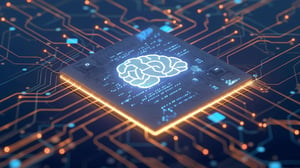
ISO/IEC 22989 provides standardized definitions and terminology for AI concepts, enabling consistent communication across technical teams, business leaders, and regulatory bodies.
MORE INFO
ISO/IEC 23894:2023 adapts traditional risk management principles to help organizations identify, assess, and manage AI-specific risks throughout the system lifecycle.
MORE INFO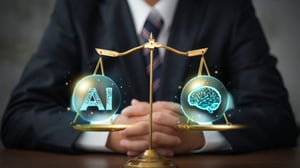
Provides technical guidance for identifying, measuring, and reducing human, data, and engineering biases throughout the AI system lifecycle.
MORE INFO
Provides a framework for understanding and establishing trustworthiness in AI systems through transparency, explainability, controllability, and risk assessment approaches.
MORE INFO
ISO/IEC TR 24029-1:2021 provides methods for assessing neural networks' ability to maintain performance when exposed to unexpected inputs, adversarial attacks, or environmental changes.
MORE INFO
ISO/IEC 23053 establishes a framework for describing machine learning-based AI systems by defining essential components, functions, and common terminology for development and governance.
MORE INFO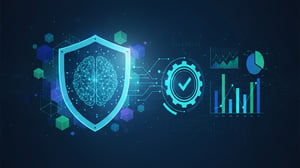
ISO/IEC 25059:2023 extends software quality standards to evaluate AI-specific characteristics including learning capabilities, probabilistic reasoning, explainability, fairness, and incomplete data handling.
MORE INFO
ISO/IEC 27001 provides privacy controls for protecting personal data, including data processed by AI systems requiring privacy compliance.
MORE INFO
Establishes requirements for managing information security risks through systematic controls, serving as a foundation for securing AI systems and data.
MORE INFO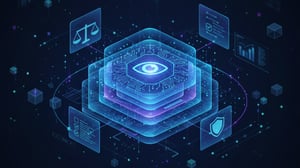
Provides guidance for governing bodies to establish oversight, policies, and risk management for responsible AI deployment aligned with organizational objectives.
MORE INFO
An IT governance framework adapted for managing AI systems through structured processes, risk management, and performance measurement aligned with business objectives.
MORE INFO
ISO/IEC 27002 provides detailed security control implementation guidance for protecting information assets, including AI systems, data, and models from cybersecurity threats.
MORE INFO
ISO/IEC 25012 defines fifteen measurable data quality characteristics that provide a critical foundation for AI system reliability, accuracy, and trustworthiness.
MORE INFO
The foundational framework, terminology, and examples for ensuring data quality in machine learning and analytics applications.
MORE INFO
Defines fourteen standardized data quality metrics and assessment methodologies for evaluating and measuring data quality in AI and machine learning systems.
MORE INFO
Establishes data quality requirements and guidelines for AI systems, focusing on training, validation, and test datasets throughout the lifecycle.
MORE INFO
Provides a process framework for ensuring data quality throughout the lifecycle of training and evaluation in machine learning and analytics applications.
MORE INFO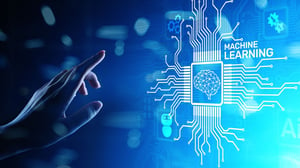
Establishes a governance framework for directing, overseeing, and controlling data quality measures throughout the lifecycle of analytics and machine learning systems.
MORE INFO
Provides technical specifications for developing responsible AI systems with emphasis on safety, ethics, trustworthiness, and human oversight in engineering applications.
MORE INFO
Provides a values-neutral framework for organizations to identify and address ethical and societal concerns throughout the AI lifecycle.
MORE INFO
Establishes quality management system requirements that AI organizations can apply to ensure consistent processes, risk management, and continuous improvement in AI development.
MORE INFO
Provides a business continuity management framework that organizations can apply to ensure AI systems remain operational during disruptions and incidents.
MORE INFO
ISO 14001 for AI integrates environmental management systems with AI operations, helping organizations reduce environmental impact while optimizing AI performance.
MORE INFO
IEC 38500 extends corporate IT governance principles to AI systems, providing organizations with a framework for responsible oversight, strategy alignment, and risk management.
MORE INFO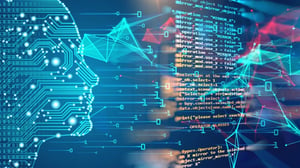
Provides a data quality assessment framework originally for geographic information that organizations can adapt for evaluating AI training data quality.
MORE INFO
The standard establishes safety and security requirements for health software products operating on general computing platforms, including AI-powered medical software applications.
MORE INFO
Provides technical guidance for safely integrating artificial intelligence components into systems where failures could harm people, property, or environment.
MORE INFO
Defines standardized data quality measures and assessment methodologies specifically designed for artificial intelligence and machine learning systems.
MORE INFO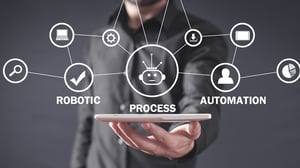
ISO/IEC 8183:2023 establishes a ten-stage framework for managing data throughout AI system lifecycles from conception to decommissioning.
MORE INFO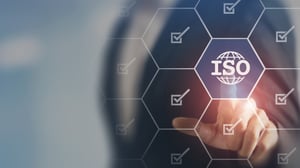
ISO/IEC 42005 provides guidance for organizations to assess potential impacts of AI systems on individuals and society throughout the system lifecycle.
MORE INFO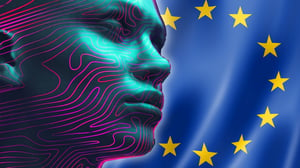
Learn about the latest AI standards in development and global efforts to harmonize them across industries and regions for safer AI use.
MORE INFO



